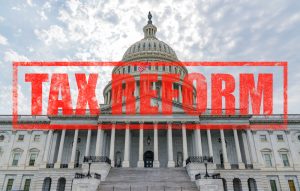President Biden’s proposed budget highlights his tax agenda – part one
 In his budget proposal for fiscal year 2025, President Biden includes several tax measures that will impact businesses and corporate taxpayers. While the Republican Party still controls the U.S. House of Representatives, most of these proposals have little chance of passing. However, depending on how the November elections go, they may breathe fresh life. Below is a summary of the significant tax provisions in the budget that may affect businesses.
In his budget proposal for fiscal year 2025, President Biden includes several tax measures that will impact businesses and corporate taxpayers. While the Republican Party still controls the U.S. House of Representatives, most of these proposals have little chance of passing. However, depending on how the November elections go, they may breathe fresh life. Below is a summary of the significant tax provisions in the budget that may affect businesses.
Tax provisions for businesses
Many of the adjustments in the budget proposal that may impact the tax landscape for corporations are ones that Biden has previously supported. Among the most noteworthy are:
- Corporation tax rates. Under this plan, the tax rate for C corporations would rise from 21% to 28%. This is still less than the 35% rate in place before the Tax Cuts and Jobs Act (TCJA). The proposed modifications would increase the effective global intangible low-taxed income (GILTI) rate to 21% from the current rate of 14%. The corporation’s alternative minimum tax rate would also increase from 15% to 21%.
- Executive compensation. Biden suggests expanding to privately held C firms the present cap on the deductibility of compensation exceeding $1 million for specific CEOs in publicly owned C corporations. A new aggregation rule would regard each controlled group member as a single employer to identify covered executives.
- Excess business loss (EBL) limit. In addition to an inflation-adjusted threshold (for 2024, $305,000 or $610,000 if filing jointly), noncorporate taxpayers under the TCJA may use their business losses to offset only business-related income or gain. The plan would classify EBLs carried forward from the previous year as current-year business losses instead of net operating loss deductions and make this limitation permanent.
- Stock buyback excise tax. The Inflation Reduction Act (IRA) reduced the tax treatment gap between buybacks and dividends by imposing a 1% excise tax on the fair market value when firms repurchase their stock. As proposed, the tax would increase fourfold to 4%. Additionally, it would expand the tax to cover certain corporate affiliates’ purchases of applicable foreign corporations.
- Like-kind exchanges. Real estate owners can postpone paying taxes when they trade their holdings for “like-kind” real estate. The plan would provide the deferral of gain for real property like-kind exchanges up to $500,000 per taxpayer ($1 million for joint filers) annually. (Assets of other kinds wouldn’t qualify.) A taxpayer would record excess like-kind gains in the year that they transfer the real estate.
There will be tax reforms in one form or another
Even if these provisions are not in the final version, new tax legislation will almost be inevitable in the next year or two. According to the timeline, many important TCJA provisions would expire after 2025 if Congress does not take action. Likely, lengthy tax discussions and negotiations will soon take center stage. For the most recent updates, contact our RRBB advisors. In the meantime, keep an eye out for part two of this two-part blog series.
© 2024
RRBB eNEWSLETTER
Get free tax planning and financial advice




